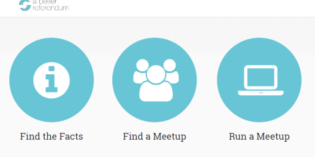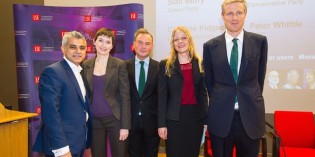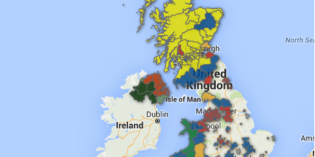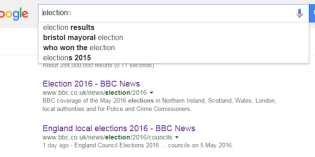Elections and electoral systems

Democracy Matters: Why we need ‘A Better Referendum’
Matthew Flinders argues that the EU referendum debate has been divisive and struggled to move beyond over-simplistic economic debates and a politics of pessimism. He writes that making this choice in an increasingly uncertain world demands a more creative and supported approach to public engagement and the provision of information than has so far been apparent, and points […]

Staying loyal or leaving the party? How open and extrovert personality traits help explain vote switching
Why are some citizens more likely to change their vote choice? Bert Bakker, Robert Klemmensen, Asbjørn Sonne Nørgaard and Gijs Schumacher show that vote switching is associated with citizen’s personality traits. Looking at UK and Denmark, they find that openness helps explain vote switching in both countries. In Denmark having a more extrovert personality is associated with party loyalty, but this […]

Is it really that difficult to find women to talk about the EU Referendum?
The significant absence of expert women’s voices from media debates and academic events related to the EU Referendum has been widely reported. Roberta Guerrina, Toni Haastrup, Katharine Wright share a list of women EU experts and argue there are in fact many women voices on these issues and they are not difficult to find. More work needs to […]

Swamped by facts, voters are still going into the EU referendum with an information deficit
The best feature of referendums can be the ability to expand public knowledge and bring new groups or issues into the public sphere. But Andrew Glencross writes there is a very real danger that the current debate is not enhancing citizens’ understanding of the costs and constraints of EU membership. He argues if this referendum is to have […]

Why voters do not (always) punish government parties for corruption
Fighting corruption is a vital aspect of good governance. Yet, it is also a highly persistent phenomenon, indicating that tackling corruption is not always at the top of incumbent’s agenda. One way to solve this problem is to engage in corruption performance voting; that is, to use elections to punish incumbents for high levels of […]

Recovery in the polls: Predicting the London Mayor election result
The reputation of election polling took a battering after failing to predict the 2015 General Election result. Dr Kenneth Bunker looks at how polls fared in the London Mayor election, and what the long-term prospects for election polling are. Similar PostsLike the polling debacle of 1992, 2015 offers an opportunity to innovate‘Super Thursday’ tells us […]

‘Super Thursday’ showed us that British politics has changed for good
Last Thursday’s elections highlighted the persistence of multi-party politics, the growing distinctiveness of the devolved nations and the diversity of electoral systems. Katie Ghose argues these longer term trends deserve greater attention given the implications they have for the future shape of the UK. Similar PostsFirst-past-the-post – normal (disproportionate) service has resumedCanada’s 2019 federal election: […]

Improvements in turnout and more partisan voting: The consequences of embedding PCC elections in the electoral cycle
The first Police and Crime Commissioner elections in 2012 are infamous for their abysmally low turnout and the second batch last week thankfully saw some improvement. In this post, Andrew Defty looks at the variation in turnout across the 40 PCC elections to consider the impact of embedding the elections in the electoral cycle, and […]

‘Super Thursday’ tells us a lot about voter participation in the UK
Thursday 5 May saw a host of elections happening around the UK, on an unprecedented scale outside of a General Election. Democratic Dashboard’s Carl Cullinane looks at what the election campaign tells us about the state of voter participation in the UK. Similar PostsRecovery in the polls: Predicting the London Mayor election resultImprovements in turnout […]



 Democratic Audit's core funding is provided by the Joseph Rowntree Charitable Trust. Additional funding is provided by the London School of Economics.
Democratic Audit's core funding is provided by the Joseph Rowntree Charitable Trust. Additional funding is provided by the London School of Economics.